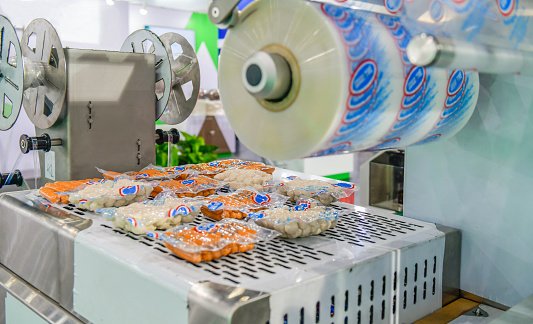Introduction.
Starting a food processing business in Nigeria is a great idea. Food is a basic need, and with Nigeria’s large population of over 200 million people, there’s a constant demand for food products.
Plus, the country’s growing urbanization means more people are relying on processed food for convenience. If you’ve ever thought about going into food processing, now is the perfect time to get started.
Food processing isn’t just about making and selling products; it’s also about solving real problems like food preservation, reducing waste, and providing quality food at affordable prices.
It could be something as simple as packaging dried fruits, grinding pepper, or producing plantain chips. The opportunities are endless, and there’s room for creativity.
But how do you start? It can feel overwhelming, especially if you’re new to the industry. Don’t worry—I’ll break it down step by step so you can move forward confidently.
Why Food Processing is a Good Business in Nigeria
Before jumping into the steps, it’s important to understand why food processing is worth it:
1. Large Market Demand
Nigeria’s population is growing every day, and people will always need food. Processed food is especially popular because it saves time and effort, making it a go-to choice for busy individuals and families.
2. Reducing Food Waste
Nigeria produces a lot of agricultural goods, but many of these go to waste because they aren’t processed in time. Food processing helps extend shelf life and reduce waste, which can also boost the agricultural sector.
3. Export Opportunities
Processed food isn’t just for local markets. Many Nigerian food products, like garri, dried fish, and packaged snacks, are in high demand overseas. Exporting processed food can bring in more income.
4. Employment Creation
Starting a food processing business can create jobs for people in your community. From sourcing raw materials to packaging and distribution, there are many roles to fill.
How Do I Start a Food Processing Business in Nigeria?
1. Decide on Your Product.
What kind of food product do you want to process? Some popular options in Nigeria include:
- Plantain chips
- Garri
- Tomato paste
- Groundnut oil
- Packaged spices
- Fruit juices
Choose something you’re passionate about or something you know people need. Research the demand for your chosen product and check out your competitors to see how you can stand out.
2. Research and Plan.
Once you have a product in mind, it’s time to do some research. Learn about the processing techniques, equipment needed, and costs. Then, write a business plan that covers:
- Your product
- Target customers
- Budget
- Marketing strategy
- Revenue projections
A clear plan will guide you and help attract potential investors or partners.
3. Register Your Business.
In Nigeria, you need to register your business with the Corporate Affairs Commission (CAC). This gives your business a legal identity and builds trust with customers. You may also need additional licenses, depending on your product. For instance:
- The National Agency for Food and Drug Administration and Control (NAFDAC) ensures food safety.
- The Standards Organization of Nigeria (SON) certifies product quality.
4. Secure Funding.
Starting a food processing business requires some capital for equipment, raw materials, and packaging. If you don’t have enough savings, consider:
- Bank loans
- Government grants (e.g., through the BOI or NIRSAL Microfinance Bank)
- Support from family and friends
- Investor partnerships
Start small if your budget is limited. You can expand as your business grows.
5. Find a Suitable Location.
Location matters. Look for a space that’s affordable and large enough for processing, packaging, and storage. Make sure it meets safety and hygiene standards. If you’re processing on a small scale, you can even start from home.
6. Get the Right Equipment.
The equipment you need depends on your product. For instance:
- Plantain chips: slicing machines, frying pans, and packaging materials.
- Tomato paste: grinders, mixers, and sealing machines.
- Groundnut oil: oil extractors, filters, and bottles.
Shop around to find affordable but reliable equipment. Local suppliers or second-hand markets can help you save money.
7. Source Quality Raw Materials.
Your product is only as good as the ingredients you use. Build relationships with trusted farmers or suppliers who can provide fresh, quality raw materials. Consistency is key.
8. Start Small-Scale Production.
Before going all out, start small and test your product. Share samples with friends and family or sell in your neighborhood. Get feedback on the taste, packaging, and price.
9. Market Your Product.
Marketing is how you’ll attract customers. Use both online and offline strategies:
- Social media: Showcase your products on Instagram, Facebook, and TikTok.
- Local markets: Partner with stores or sell directly at open markets.
- Branding: Use attractive packaging and create a memorable brand name.
Word of mouth is powerful, so encourage happy customers to tell others about your product.
FAQs
1. How much capital do I need to start?
It depends on the scale of your business. A small-scale food processing business can start with as little as ₦50,000 for basic equipment and raw materials. Larger operations may require ₦500,000 or more.
2. Do I need NAFDAC approval?
Yes, if your product is for public consumption, NAFDAC approval is necessary. It ensures your food is safe and meets regulatory standards.
3. What challenges might I face?
Challenges can include:
- High costs of equipment and packaging.
- Power supply issues (you might need a generator).
- Competition from established brands.
Planning and persistence can help you overcome these challenges.
Conclusion
Starting a food processing business in Nigeria is a rewarding journey. With the right product, careful planning, and hard work, you can build a business that meets a real need while also making a profit. Remember, the key is to start small, focus on quality, and keep improving.
What kind of food processing business would you start, and why?





GIPHY App Key not set. Please check settings